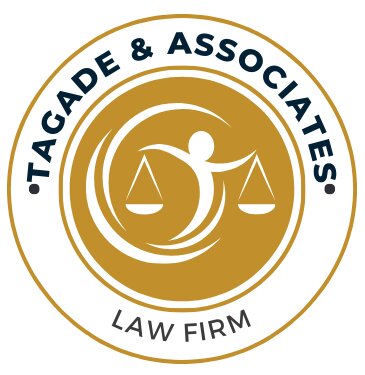Best Discrimination Lawyers in Nagpur
Share your needs with us, get contacted by law firms.
Free. Takes 2 min.
List of the best lawyers in Nagpur, India
About Discrimination Law in Nagpur, India
Discrimination in Nagpur, as in the rest of India, is governed by various national laws designed to promote equality across different strata of society. These laws are in place to prevent discrimination based on race, sex, caste, religion, disability, and more. In Nagpur, this legal framework is complemented by local judicial resources and community programs aimed at fostering inclusive practices and mitigating discrimination in workplaces, educational institutions, and public places. Being a culturally diverse city, Nagpur places significant importance on upholding these equality principles.
Why You May Need a Lawyer
Legal intervention can be crucial in discrimination cases to ensure fair treatment and justice. Below are common situations where individuals may seek legal assistance:
- Facing prejudice or victimization due to race, caste, gender, or disability at work or in educational settings.
- Experiencing harassment or bias in public services or institutions.
- Conflicts arising from housing discrimination or denial based on societal status.
- Instances involving hate speech or racial slurs.
- Need for mediation in cases of unfair treatment or failure to accommodate reasonable adjustments for disabled individuals.
Local Laws Overview
In Nagpur, key discrimination laws mirror national legislation which includes:
- The Constitution of India: Guarantees equality before the law and protects against discrimination through several articles, including Articles 15 and 16.
- The Protection of Civil Rights Act, 1955: Safeguards against untouchability and caste discrimination.
- The Scheduled Castes and the Scheduled Tribes (Prevention of Atrocities) Act, 1989: Protects members of these communities from discrimination and violence.
- The Rights of Persons with Disabilities Act, 2016: Advocates for equal opportunities and non-discrimination for people with disabilities.
- Maharashtra State Specific Initiatives: State-based schemes and policies that bolster national anti-discrimination efforts.
Frequently Asked Questions
What constitutes discrimination under Indian law?
Discrimination is any unfair or prejudicial treatment of individuals based on various protected characteristics such as caste, race, gender, religion, or disability.
Can I file a case in Nagpur if I face workplace discrimination?
Yes, workplace discrimination can be contested under relevant laws. It's advisable to collect evidence and consult with an employment lawyer.
How can I prove a discrimination case?
Proof includes documented evidence or testimony showing unfair treatment based on a protected characteristic. Legal assistance can further guide evidence gathering.
Where can I report discrimination in Nagpur?
Complaints can be lodged at local police stations or human rights commissions. Legal counsel can assist in navigating these options.
What are the legal consequences for someone found guilty of discrimination?
Penalties vary depending on the law violated and may include fines, imprisonment, or mandated corrective actions.
Can educational institutions in Nagpur be held accountable for discrimination?
Yes, educational institutions fall under scrutiny and must adhere to anti-discrimination laws, ensuring equal access and opportunities.
Are there any protections for religious minorities in Nagpur?
National laws protecting religious minorities are applicable in Nagpur, ensuring freedom of religion and safeguarding against discrimination.
Can discrimination laws protect against social media harassment?
Laws are evolving to address online harassment. Instances of discrimination or hate speech can be reported to cyber laws authorities.
What role do NGOs play in fighting discrimination in Nagpur?
NGOs actively raise awareness, provide counseling, and assist victims in legal proceedings, playing a key role in education and advocacy.
Is legal aid available for victims of discrimination in Nagpur?
Yes, several governmental and non-governmental bodies provide free or subsidized legal aid to victims of discrimination in Nagpur.
Additional Resources
Individuals seeking assistance can reach out to the following resources:
- National Human Rights Commission (NHRC): Offers a platform for lodging complaints and seeking justice.
- National Commission for Women (NCW): Assists with gender-based discrimination cases.
- Ministry of Social Justice and Empowerment: Works on issues related to caste and disability discrimination.
- Local NGOs: Organizations such as the Human Rights Law Network (HRLN) offer guidance and advocacy services.
Next Steps
If you believe you are a victim of discrimination in Nagpur, consider the following steps:
- Document the Incident: Keep a record of events, communications, and any witnesses involved.
- Seek Legal Advice: Consult with a lawyer experienced in discrimination law to understand your rights and options.
- File a Complaint: Report the issue to relevant authorities or commissions as advised by your legal counsel.
- Pursue Legal Action: If necessary, follow through with legal proceedings guided by your lawyer.
Engaging with local legal aid services and supportive community resources can significantly aid in addressing and resolving discrimination issues in Nagpur.
Lawzana helps you find the best lawyers and law firms in Nagpur through a curated and pre-screened list of qualified legal professionals. Our platform offers rankings and detailed profiles of attorneys and law firms, allowing you to compare based on practice areas, including Discrimination, experience, and client feedback.
Each profile includes a description of the firm's areas of practice, client reviews, team members and partners, year of establishment, spoken languages, office locations, contact information, social media presence, and any published articles or resources. Most firms on our platform speak English and are experienced in both local and international legal matters.
Get a quote from top-rated law firms in Nagpur, India — quickly, securely, and without unnecessary hassle.
Disclaimer:
The information provided on this page is for general informational purposes only and does not constitute legal advice. While we strive to ensure the accuracy and relevance of the content, legal information may change over time, and interpretations of the law can vary. You should always consult with a qualified legal professional for advice specific to your situation.
We disclaim all liability for actions taken or not taken based on the content of this page. If you believe any information is incorrect or outdated, please contact us, and we will review and update it where appropriate.








